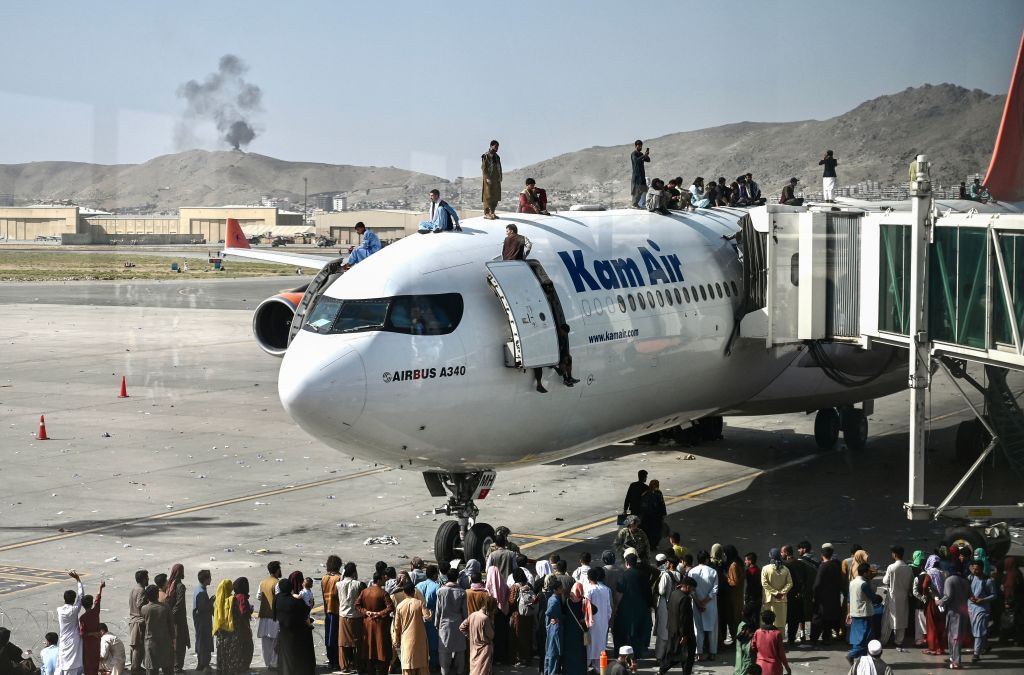
The US and allied retreat from Afghanistan two years ago has left a seemingly indelible question mark over America’s ability to influence international events. This point is not lost on either those states that upheld the US as a security provider or those that looked up to it as a democratic model to emulate. America’s adversaries—most importantly China, Russia, Iran and North Korea—could not be more pleased to see the US on the back foot in the conduct of global affairs.
US President Joe Biden’s administration has sought to contain and repair the damage resulting from the Afghanistan and Iraq fiascos and the corrosive persistence of Trumpism that has polarised the American public to such an extent that the very fabric of America’s democratic institutions and values are under threat.
On the foreign policy front, Washington has made a concerted effort to ensure the unity and strength of NATO in the face of Russia’s invasion of Ukraine, to subject Russia to a regime of maximum sanctions and to provide Ukraine some US$43 billion worth of military and humanitarian assistance to help defeat Russia. It has also sought to forge an alliance of democracies against autocracies and theocracies and to beef up such measures as the Quad and AUKUS to contain China’s assertive regional and global ambitions.
Domestically, the administration has focused on economic recovery, the renewal of America’s ageing infrastructure, innovative measures in such areas as climate change, and welfare services and race relations. The aim is to restore America’s status as a world power, erode the appeal of the legally besieged Donald Trump and boost Biden’s re-election chances next year.
Yet none of these foreign and domestic policy steps have so far produced the desirable results. While NATO has held together despite occasional cracks threatening its unity and its support for Ukraine in the long run, Vladimir Putin’s Russia has survived the sanctions with an ability to continue the Ukraine war for much longer than was expected.
Many countries have either stood behind Russia or precariously found it expedient to continue and in some cases strengthen their relations with Moscow. Whereas China, North Korea, Iran and Syria have openly thrown their lot in with Russia, India and many of the Middle Eastern, South and Southeast Asian, African and Latin American states have chosen not to take sides in the Ukraine conflict. Moscow’s resource diplomacy, involving delivery of cheap oil and grain, along with disillusionment with or doubt about US power, has been effective in this respect.
The Biden administration’s policies of containing China haven’t been productive either. They have done little to diminish President Xi Jinping’s autocratic and nationalist ambitions to make China a world power or reduce his resolve to unite Taiwan with the mainland in one way or another. Despite the ups and downs in China’s rate of economic growth and dependence for prosperity on the import of raw materials and export of goods, the country’s march towards economic and military parity with the US now looks unstoppable, unless there’s a catastrophic internal implosion.
China’s footprint through its Belt and Road Initiative, financial prowess, and bilateral and multilateral trade and economic deals has been rapidly expanding on all continents, entailing political and diplomatic influence. This is especially the case in the Middle East, Africa and Asia, but also even in Australasia, where Beijing has poured financial and development aid into some small Pacific island states.
Meanwhile, Washington’s attempts to make America and its global interests, as well as the world, safer from the threat of terrorism haven’t paid off. Although there has been no repeat of 9/11, what is transpiring in Afghanistan, Pakistan, the Levant and Africa is a revival of violent extremist groups. The Taliban’s resumption of their ultra-extremist and gender-apartheid rule in Afghanistan has emboldened other groups, most importantly al-Qaeda, Islamic State, Al-Shabaab, Boko Haram and their associates and splinters, to believe that they can triumph too. US intelligence services and UN reports inform us of the rising danger of terrorism from the Taliban and these other groups.
Biden is entitled to hint that the Taliban have controlled the deadly Khorasan branch of Islamic State in Afghanistan, but all reports indicate otherwise. There’s also a view in Washington that it could use its erstwhile Sunni Islamic terrorist enemy as a counter to the Shia Islamic regime in Iran and to stir up trouble for Russia in its Central Asian backyard in response to the Ukraine invasion. However, that would constitute a betrayal of the very cause that drove the US and its allies to fight the Taliban as the mortal enemy for two decades at high human and financial cost.
When all this is put together with the fact that Biden’s internal policies have had little success in making a dent in Trump’s popularity among his vast sea of supporters, despite his indictments, the US is no longer the global power that it used to be. By the same token, one wonders whether it has the vitality to play a central role in forging a new world order in which accommodation and cooperation, rather than confrontation, will prevail, and whether America’s democracy at home and world-power status abroad will return to anything like what they were during the Cold War era.

